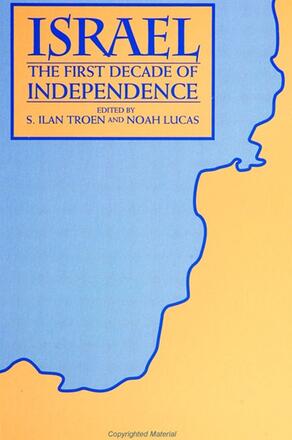
Israel
The First Decade of Independence
Alternative formats available from:
This book provides new interpretations and research findings, from a wide spectrum of viewpoints, on Israel's formative first decade of independence.
Description
Israel presents a panoramic display of fresh interpretations and new research findings related to Israel's first decade of independence. Those years of rapid change are widely regarded as a formative period in the development of the state and the society. As new archival materials have become available for scrutiny, a new generation of historians and social scientists has begun to re-examine old issues and to raise new questions. In this context of academic ferment, scholars in diverse disciplines, of different generations and of opposing ideological orientations, have collaborated in this book in examining the period anew. Thirty-two authoritative essays offer new understandings from the diverse perspectives of history, political science, sociology, literary criticism, geography, anthropology, and law. The intention is to provide a wide-ranging reconsideration of post-independence Israel that will serve as a benchmark for future study and research.
S. Ilan Troen holds the Sam and Anna Lopin Chair in Modern History, Ben Gurion University of the Negev, and is Senior Associate Fellow of the Oxford Centre for Hebrew and Jewish Studies. Noah Lucas is Fellow in Israeli Studies at the Oxford Centre for Hebrew and Jewish Studies, Hebrew Centre Lecturer in Politics at the University of Oxford, and Senior Associate Member of St. Antony's College, Oxford.
Reviews
"This is an impressive work. The authors bring new evidence, documents that simply weren't available when the earlier histories were written, and these new documents, or even simply new perspectives, contribute to the ongoing debates involved in discussion of Israeli political history. This book is a mammoth undertaking, and one of its real strong points is the sheer range of subjects that are included within one set of covers. " — Gregory S. Mahler, University of Mississippi